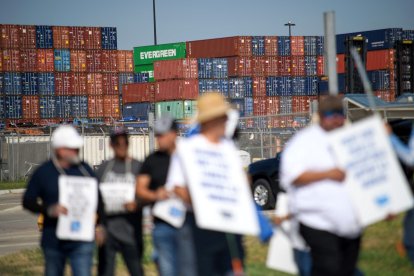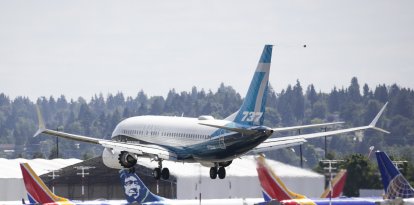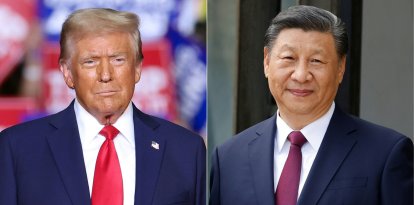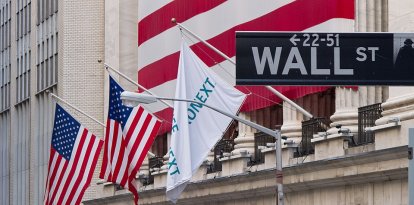After three days of a port strike, the Longshoremen's union agreed to return to work
The settlement includes a pause in the strike until January 15 and a wage increase.

The International Longshoremen's Association (ILA) has been on strike for three days now/ Mark Felix.
After nearly three days of the port strike, the International Longshoremen's Association (ILA) reached an agreement to return to work. As told to The Associated Press sources connected to the negotiations, they agreed to a wage increase and to resume talks next Jan. 15.
According to the source who spoke to AP, the settlement reached by the union and the U.S. Maritime Alliance will allow the parties to negotiate a new six-year contract.
“I want to thank the union workers, the carriers, and the port operators for acting patriotically to reopen our ports and ensure the availability of critical supplies for Hurricane Helene recovery and rebuilding", president Biden celebrated.
The strike began last Tuesday, October 1, and, given its extension from Maine to Texas, cost the U.S. economy about $5 billion a day. It also came at the peak of Christmas shopping at the 36 ports involved, through which approximately half of the cargo of ships entering and leaving the United States passes.
As for the consumer consequences, Jena Santoro, senior manager of global risk intelligence at supply chain risk management firm Everstream Analytics, estimated that there could be price hikes and shortages in some products entering the second consecutive week of the strike.
At the national level, Kamala Harris and Donald Trump exchanged blame, although the White House had a legal mechanism to end the strike, which they refused to use. It is the Taft-Hartley Act, legislation that was enacted in 1947 despite President Harry Truman's initial veto.
The legislation allows presidents to request an 80-day "cooling-off" period in court, thus forcing workers to return to their jobs for the duration of the aforementioned period. It applies to strikes that "endanger health or national security" and was last invoked by George W. Bush in 2002.
RECOMMENDATION























